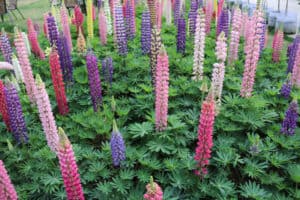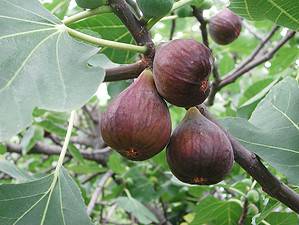Are you tired of itchy mosquito bites? Are you worried about the West Nile virus or malaria? Mosquitos find their victims by following the scent of carbon dioxide. Humans exhale carbon dioxide with every breath, and mosquitos can smell it from 150 feet away! Other human smells, like sweat and beauty products, can attract mosquitos.
One solution to keep mosquitos away is to use a strongly scented plant. Many aromatic garden plants can help confuse mosquitos’ sensitive scent receptors that track humans down. But how do we know which plants actually work to keep mosquitos away? Science! Here we will look at several studies that have answered this exact question. So, which plants are scientifically proven to repel mosquitos? Let’s find out.
We should first mention that growing strongly scented plants is not enough to throw mosquitos off your trail. Studies have shown that rubbing the leaves on your skin and clothing is effective. Another method is to burn the dry plant material; this also works well in keeping mosquitos away. We even see that rubbing the plant’s essential oil on exposed skin and clothing can be effective.
Experts recommend mixing the essential oil with a skin-friendly oil, such as jojoba or coconut, before applying. Definitely test a tiny area of skin first to ensure you are not allergic before proceeding. Burning essential oil is also indicated for some plants as an effective method to keep mosquitos away.
In this article, we will discuss the plants that are scientifically proven to keep mosquitos away!
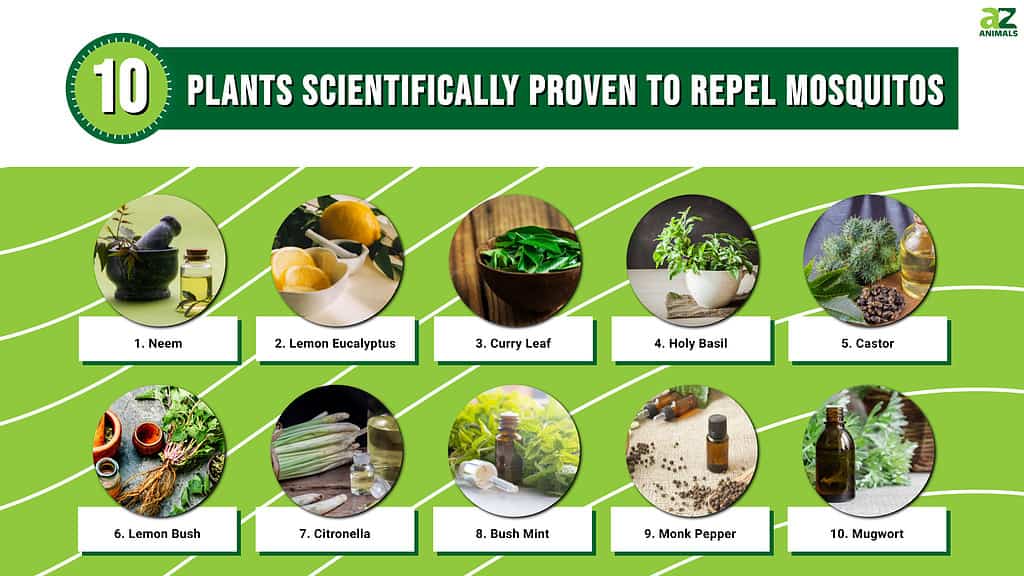
1. Neem
Neem oil has been used by people worldwide for centuries to keep mosquitos away. It is best mixed with a carrier oil before applying. In one fascinating study, a two percent neem to 98 percent coconut oil solution was applied and shown to be effective at keeping mosquitos from biting over 96 percent of the time!
Neem oil is widely available for purchase at any garden center. It is a common pest control additive for houseplants and greenhouse plants, and now you can use it as your own personal pest control method to keep mosquitos away.
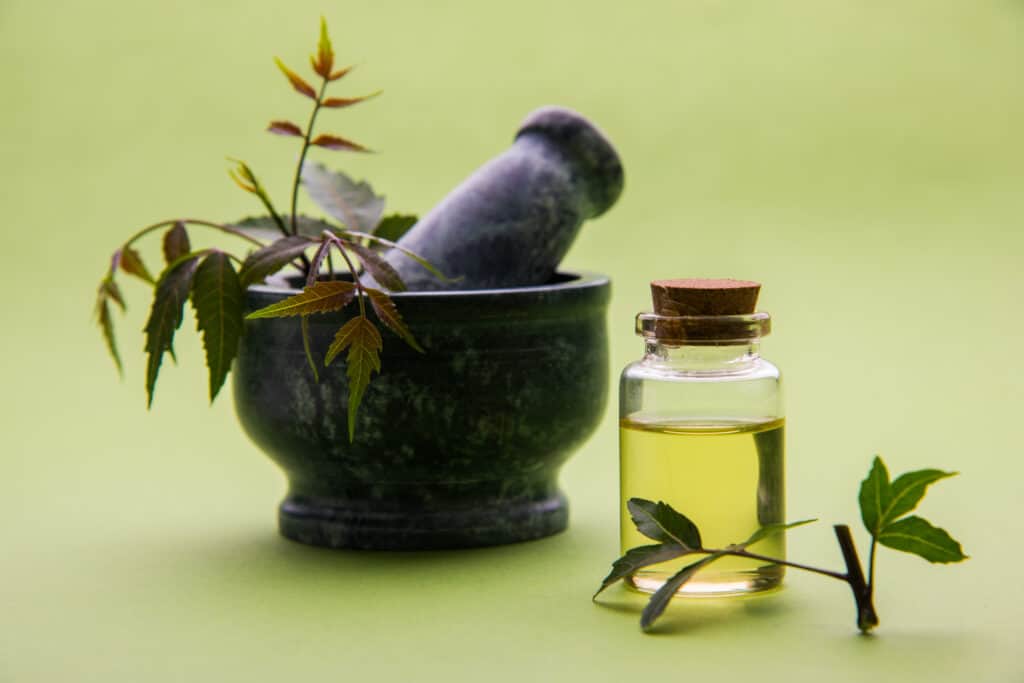
Neem oil has been used as a natural mosquito repellent for decades, but it’s best mixed with a carrier oil before applying.
©StockImageFactory.com/Shutterstock.com
2. Lemon Eucalyptus
The oil of lemon eucalyptus was tested and found to be effective against mosquitos 95 percent of the time for up to three hours. The Centers for Disease Control (CDC) recommends using a product that contains lemon eucalyptus oil to keep mosquitos away. According to CDC, “repellent efficacy and duration of protection vary considerably among products and mosquito and tick species. Ambient temperature, level of activity, perspiration, water exposure, abrasive removal, and other factors affect efficacy and duration of protection.”
Not surprisingly, lemon eucalyptus oil is an ingredient in several commercial mosquito repellant sprays, including several well-known and popular brands. You can buy lemon eucalyptus oil in health food or specialty stores and make your own solution by mixing it with a skin-friendly carrier oil. Or you can purchase the synthesized version at your local store. If you are reading the labels, lemon eucalyptus oil is often shortened to OLE on the bottle.
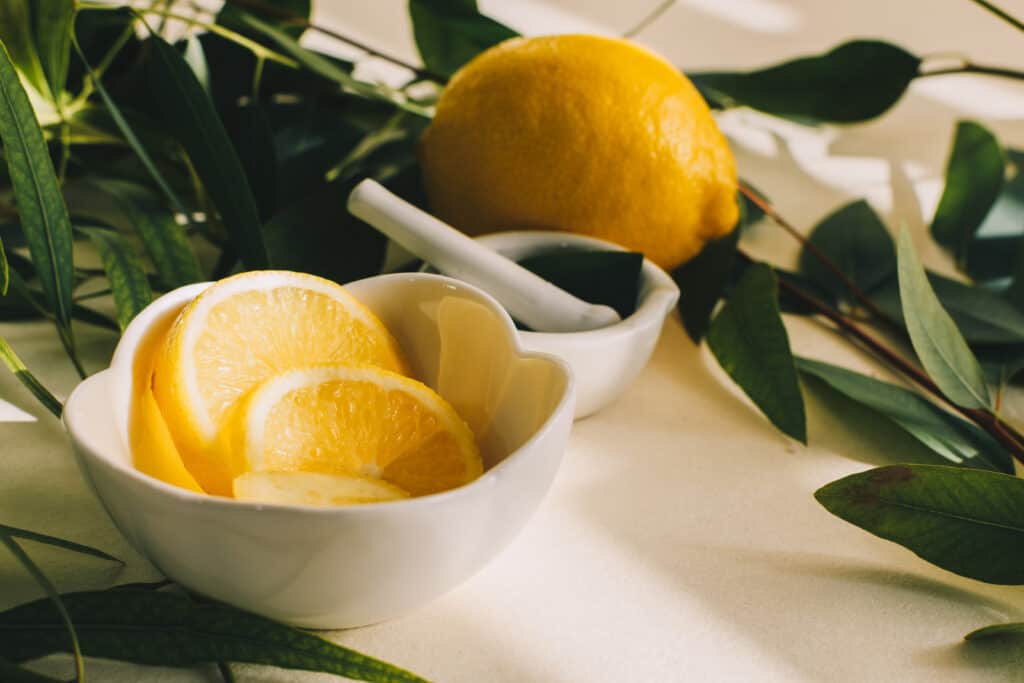
Lemon eucalyptus oil is an ingredient in several commercial mosquito repellant sprays.
©RutySoft/Shutterstock.com
3. Curry Leaf
Curry leaf contains alpha-pinene and beta-myrcene. These two compounds are found in the plant’s essential oil and in the whole leaves and are good at keeping mosquitos away according to several studies.
You can purchase curry leaves in any spice store or market that sells herbs. You can crush the curry leaves or burn them to release the highly aromatic oils that keep mosquitos away. You can also order the essential oil from an online retailer and mix it with a carrier oil before applying it to bare skin. Some people put the mixture in a spray bottle and apply it to their clothing via a fine mist.
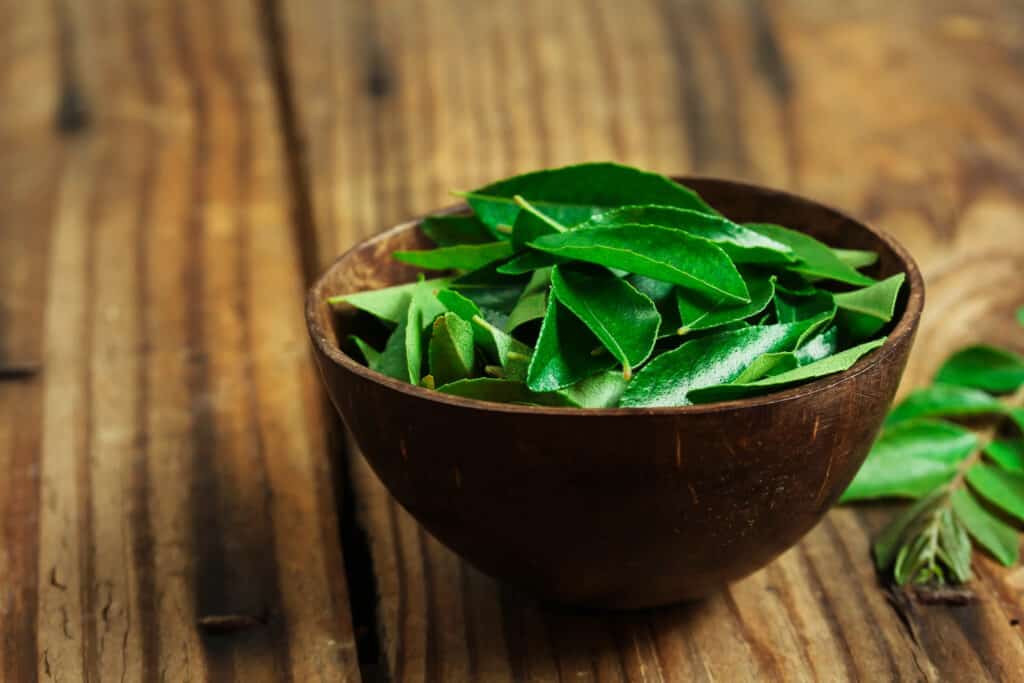
Several studies support curry leaf’s use as a mosquito repellent, but like neem, it’s best mixed with a carrier oil first.
©vm2002/Shutterstock.com
4. Holy Basil
Holy basil is not the same basil you use to make pesto and pasta sauce. Holy basil (Ocimum basilicum) has been used to keep mosquitos away for centuries. People also mixed holy basil with grains in storage to keep other insects out of the food.
You can find holy basil in many Indian or African grocery stores or from an online retailer. You can grow the whole plant yourself and rub the fresh leaves on your exposed skin and clothing to keep mosquitos away.
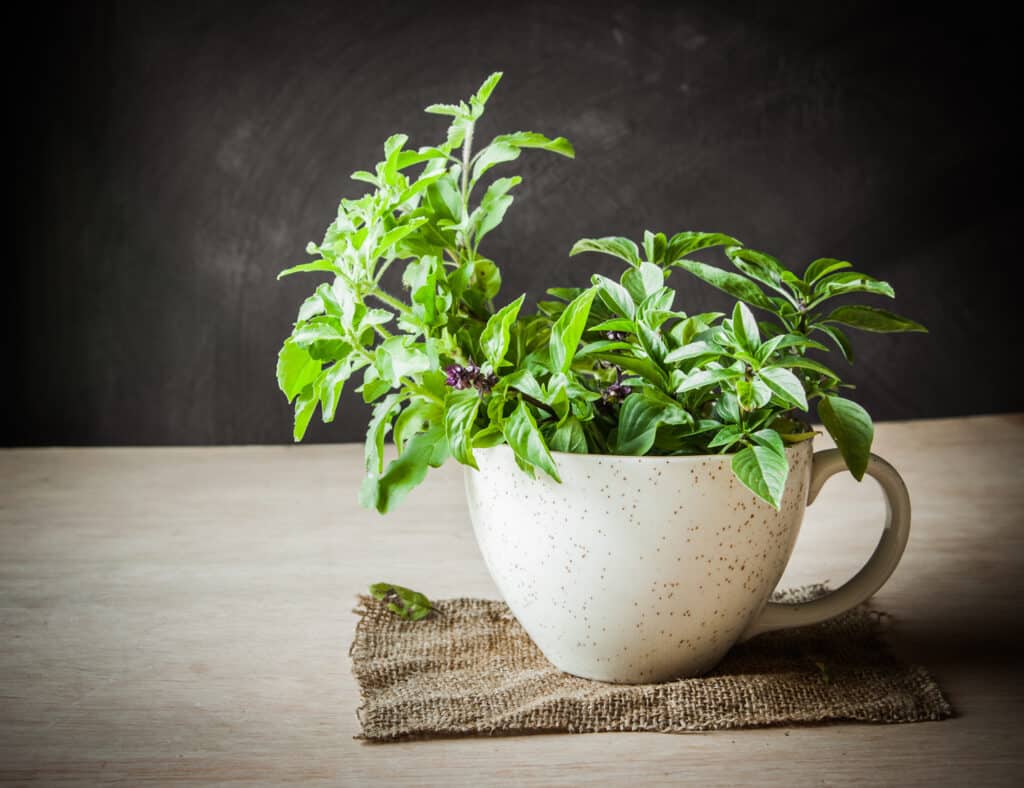
Holy basil leaves can be rubbed on your skin or clothing to repel mosquitos.
©A Studios/Shutterstock.com
5. Castor
According to several studies, the Castor plant (Ricinus communis) keeps mosquitos away quite effectively. During tests, the highest results were achieved by burning castor oil. This oil is extracted from the castor seed and is the same castor oil found in any pharmacy or grocery store. The castor seed has a high percentage of essential oil and a strong scent that mosquitos don’t like.
You can also grow castor plants yourself. The beans (seeds) are readily available in garden centers. It is an herbaceous perennial with beautiful deeply lobed leaves. The castor plant can be found in USDA Hardiness Zones 9-11. In colder climates, it is a warm weather annual that readily reseeds itself, for an endless supply of free plants. You can collect the seeds in the fall to replant next year, or let them fall from the bush naturally to self-seed.
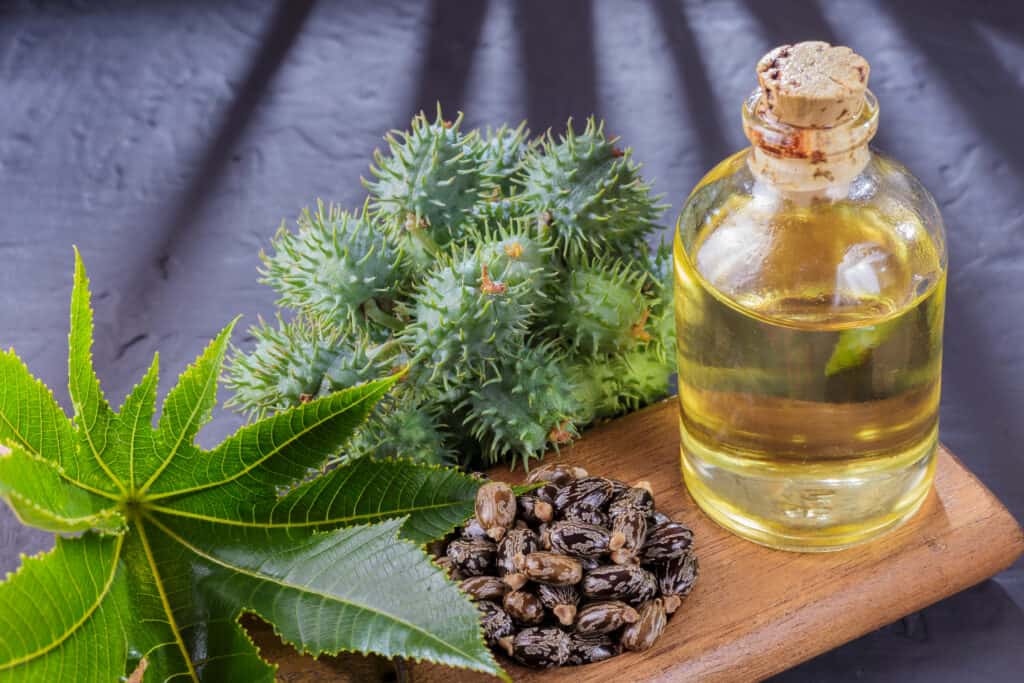
The castor seed has a strong scent that mosquitos don’t like.
©Alexander Ruiz Acevedo/Shutterstock.com
6. Lemon Bush
Lemon bush (lippia javanica) has been widely studied for use as a mosquito repellent. The whole leaves of the lemon bush are dried and then used to make a strong essential oil. This lemon-scented oil contains all of the synergistic compounds of the plant and keeps mosquitos away for up to eight hours. It is also effective to burn the dried leaves to keep mosquitos away from an outdoor seating or dining area. Plus, it smells terrific!
If you have a greenhouse you can grow lippia javanica at home. It is a tropical plant that is not cold-hardy in the slightest. Growing lemon bush is rewarding; your greenhouse will smell so good!
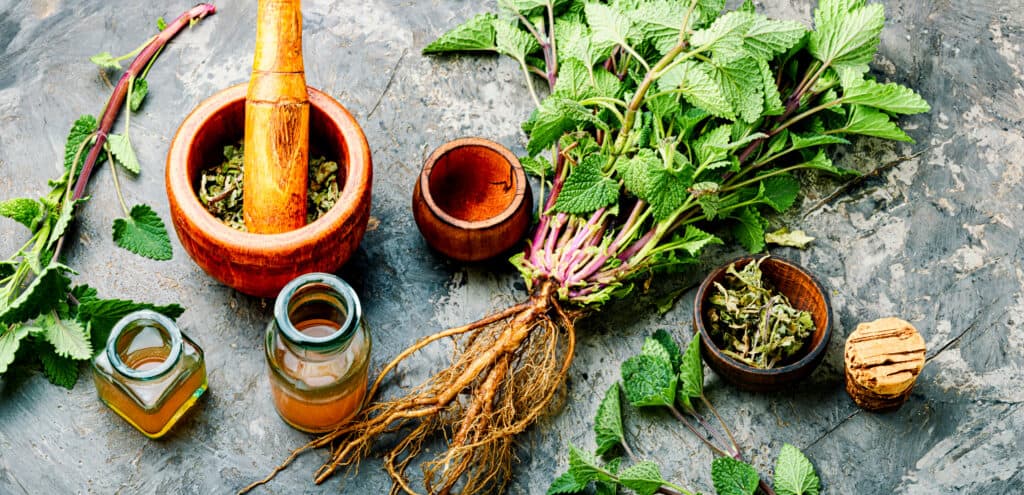
Lemon Bush can keep mosquitos away for up to eight hours.
©Lunov Mykola/Shutterstock.com
7. Citronella Grass
Citronella (Cymbopogon nardus) contains citroella oil. This compound has been long touted as a mosquito repellant. And while this is true, citronella doesn’t keep mosquitos away as well as some other plants. In one study, citronella candles had a success rate of 14 percent. In the same study, citronella diffusers (with one hundred percent active ingredient) were successful 68 percent of the time.
If you plan to use citronella in an area with a dense population of mosquitos, combining it with another secondary method for complete protection against these biting bugs is recommended.
You can attempt to grow citronella yourself. It is an evergreen perennial if you are in USDA Hardiness Zones 9, 10, or 11. If you live in an area with colder temperatures you can grow it as a summer annual.
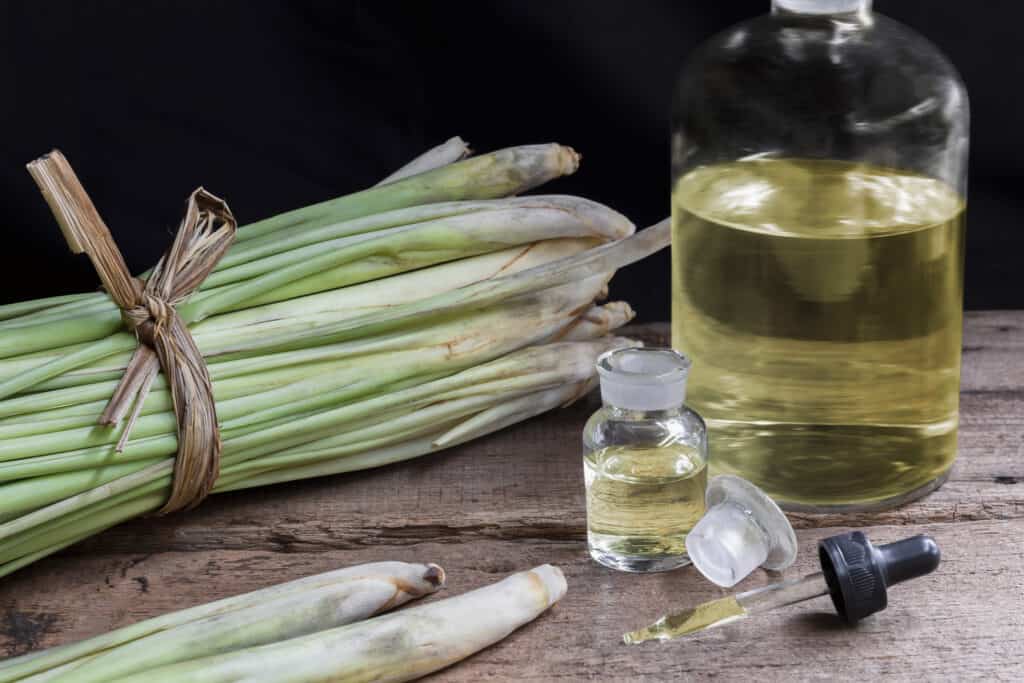
Studies have found citronella useful for keeping mosquitos away, especially if used in diffusers.
©iStock.com/ARISA THEPBANCHORNCHAI
8. Bush Mint
Bush mint is scientifically named both Mesosphaerum suaveolens and Hyptis suaveolens. The common name is either bush mint or pignut. This plant has been found equally as effective as DEET in keeping mosquitos away.
Bush mint plants grow naturally in many warm parts of the world. The essential oils extracted from fresh leaves are an excellent mosquito repellant for 90 minutes. It is currently being studied extensively in developing new and safe insect-repellant products.
If you want to make a DIY mosquito spray, bush mint is an extremely easy-to-grow member of the mint family; a top choice as a home remedy because of its fast and prolific growth and ability to self-seed. You may even wish to plant it in a pot, so it doesn’t take over your whole flower bed. Crushing the fresh leaves, burning the dry leaves, or making a homemade essential oil are all effective methods for keeping mosquitos away.

The essential oils extracted from fresh Bush Mint leaves make for an excellent mosquito repellant for up to 90 minutes.
©Inga Gedrovicha/Shutterstock.com
9. Monk’s Pepper
Ok, this is one that you may not have heard of before. Also called the chaste tree, the Vitex agnus castus plant has proven very effective at keeping mosquitos away. This Mediterranean plant has potent essential oils in the fruits, leaves, and seeds. When used as a mosquito repellant, the oil is effective for up to six hours! It also works against ticks and fleas.
If you are looking for monk pepper essential oil, it is often found online under the name chaste berry oil or vitex berry oil. You can also grow this small shrub at home. It is perennial in USDA Hardiness Zones 6-9, giving you a consistent source of fresh leaves.
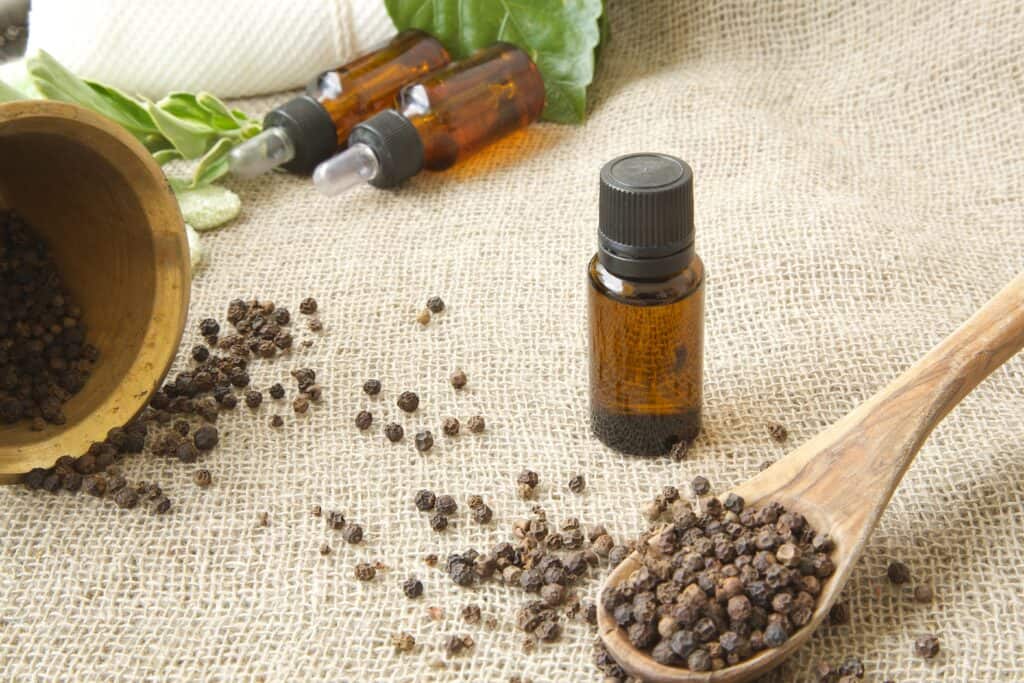
When used as a mosquito repellant, the oil in Monk’s Pepper is effective for up to six hours!
©Tolikoff Photography/Shutterstock.com
10. Mugwort
Mugwort, or Artemisia vulgaris as it is scientifically named, is a species of flowering plant in the daisy family. It has been studied and found to be effective at keeping mosquitos away. The best way to use mugwort is by drying and burning the leaves or by crushing the fresh leaves to release the aroma.
Mugwort is a very common plant with many names (chrysanthemum weed, wild wormwood, and felons herb to name a few) and it is so easy to grow it is often thought of as a weed. It is native to temperate regions of Europe, Asia, North Africa, and Alaska and is naturalized all over North America. The chances of you being able to forage for this and find it on the roadside are higher than average. You can also grow mugwort at home in USDA Zones 3-9.
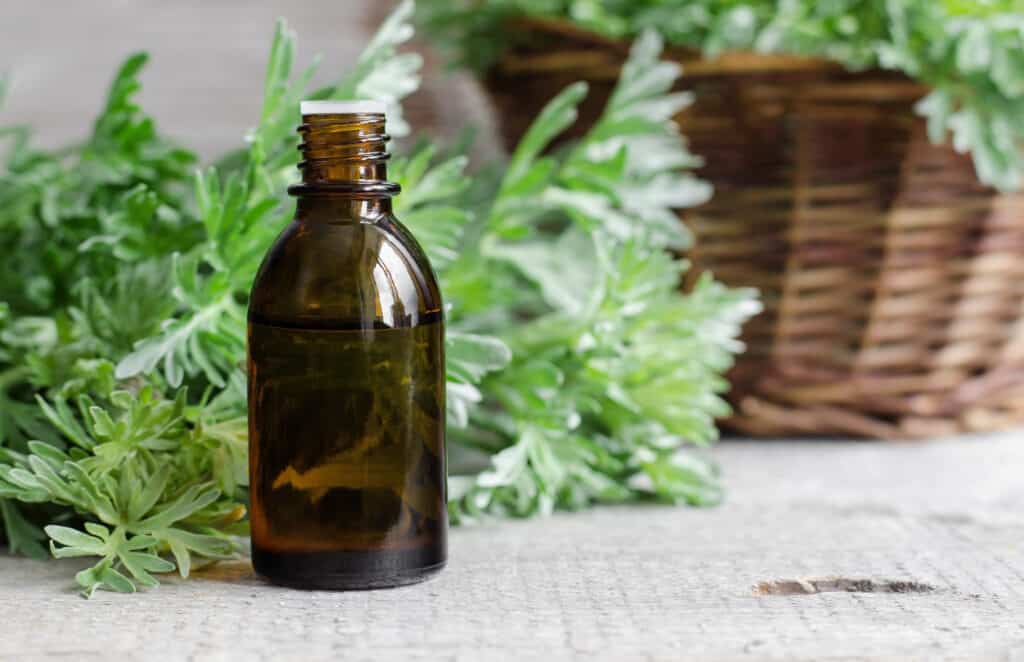
Studies find Mugwort can be effective at keeping mosquitos away
©kazmulka/Shutterstock.com
Essential Oil Cautions
You animal lovers likely know this already, but we will briefly mention the cautions. Essential oils are powerful concentrated formulas that can be toxic if misused. Natural does not always mean safe. Keep essential oils in a secure place away from children and pets.
Consult your doctor, pediatrician, or veterinarian before using any essential oil in your home, on your body, or near your children and pets. If you are pregnant or nursing, or have epilepsy use extreme caution around all essential oil until you have thoroughly researched their effects. Even the seemingly harmless essential oil diffusers should not be used around children younger than six months old.
Summary of the Plants Scientifically Proven to Repel Mosquitos
| Number | Plant |
|---|---|
| 1 | Neem |
| 2 | Lemon Eucalyptus |
| 3 | Curry Leaf |
| 4 | Holy Basil |
| 5 | Castor |
| 6 | Lemon Bush |
| 7 | Citronella |
| 8 | Bush Mint |
| 9 | Monk Pepper |
| 10 | Mugwort |
The photo featured at the top of this post is © FotoHelin/Shutterstock.com
Thank you for reading! Have some feedback for us? Contact the AZ Animals editorial team.



